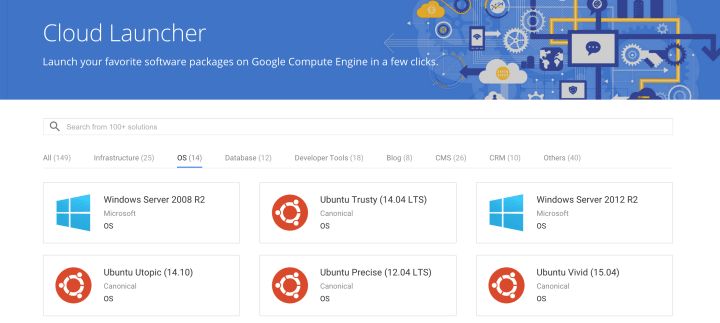Juju Support for Google Cloud Platform
Udi Nachmany
on 3 June 2015
 As you may have noticed in our release notes, the recent release of a stable 1.23.2 Juju core (and its 1.23.3 follow-on) is packed with goodies such as support for systemd (and Vivid), improved proxy support for restrictive networks, new charm actions, as well as a first run at Juju service leader elections – and the list goes on!
As you may have noticed in our release notes, the recent release of a stable 1.23.2 Juju core (and its 1.23.3 follow-on) is packed with goodies such as support for systemd (and Vivid), improved proxy support for restrictive networks, new charm actions, as well as a first run at Juju service leader elections – and the list goes on!
For public cloud users of Ubuntu, we are particularly excited to let you know that this version includes support for Google Compute Engine (GCE). If you’re a Google Cloud Platform user, you can now spin up, scale, and modify production workloads easily and quickly, with our market-leading, open source universal modelling tool, Juju. If you are already a Juju user and thinking about using Google Cloud Platform, you can take your magic over to them and get going in no time.
Configuring for GCE: https://jujucharms.com/docs/stable/config-gce
Juju 1.23.2 release notes: https://jujucharms.com/docs/devel/reference-release-notes
This ties in very nicely to the upstream work (here and here) we’ve been doing in the past months, to make it easy to deploy Kubernetes servers using Juju, even on cloud environments that are not yet supported by the Kubernetes project.
On a related note, if you’re using Google Cloud Platform you’ve probably taken a look at the sleek Cloud Launcher Google have released recently. And if you looked closely, you also noticed that you can now spin up your Ubuntu VMs using this very friendly UI.
 And at the time of writing, since the list is sorted by popularity, Ubuntu (unsurprisingly) has four of the top six spots.
And at the time of writing, since the list is sorted by popularity, Ubuntu (unsurprisingly) has four of the top six spots.
Talk to us today
Interested in running Ubuntu in your organisation?
Newsletter signup
Related posts
AWS IoT Greengrass comes to Ubuntu Core
AWS’s open source edge run time meets Canonical’s fully containerized OS for devices delivering a supported and robust end-to-end answer for enterprises...
Tutorial: getting started with AWS IoT Greengrass on Ubuntu Core
We recently announced that you can now benefit from the combined power of Ubuntu Core and AWS IoT Greengrass to bring the computation, storage, and AI...
How to avoid package End of Life through backporting
When a Git vulnerability hit systems past Ubuntu package end of life, teams had to reassess security options. Learn how to stay protected beyond standard support.
